formerly eScholarship Editions


|
|
|
|
Your search for
'Anthropology' in subject
found 300 book(s). | Modify Search | Displaying 161 - 180 of 300 book(s) | |
| 161. | 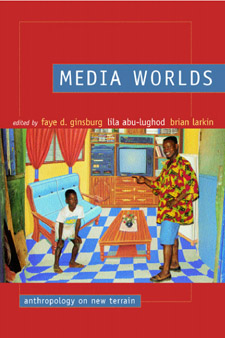 | Title: Media worlds: anthropology on new terrain Author: Ginsburg, Faye D Published: University of California Press, 2002 Subjects: Anthropology | Media Studies | Cultural Anthropology | Electronic Media | Postcolonial Studies | Ethnic Studies | Gender Studies | Sociology | Sociology | Sociology Publisher's Description: This groundbreaking volume showcases the exciting work emerging from the ethnography of media, a burgeoning new area in anthropology that expands both social theory and ethnographic fieldwork to examine the way media - film, television, video - are used in societies around the globe, often in places that have been off the map of conventional media studies. The contributors, key figures in this new field, cover topics ranging from indigenous media projects around the world to the unexpected effects of state control of media to the local impact of film and television as they travel transnationally. Their essays, mostly new work produced for this volume, bring provocative new theoretical perspectives grounded in cross-cultural ethnographic realities to the study of media. [brief] Similar Items |
| 162. | 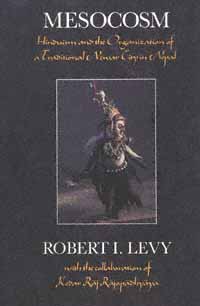 | Title: Mesocosm: Hinduism and the organization of a traditional Newar city in Nepal Author: Levy, Robert I. (Robert Isaac) 1924- Published: University of California Press, 1991 Subjects: Anthropology | Tibet | Hinduism | Asian History Publisher's Description: Mesocosm is a study of Hinduism in its most fully realized form as a symbolic system for organizing the life of a particular kind of city - what the author terms an "archaic" city. The work is a detailed description and analysis of the symbolic world of Bhaktapur, a unicultural city in the Kathmandu Valley, a city which is perhaps the last surviving example of a type of organization once widespread in the ancient world.Robert Levy views Bhaktapur as a structured "mesocosm," mediating between the microcosm of individual self-conception and the macrocosm of the culturally conceived larger universe. The city is a bounded entity, grounded on a minutely divided and interrelated sacrilized space. It uses that space, roles assigned by an elaborate caste system, a semantically differentiated pantheon, and the tempos and forms of the festival year and rites of passage to construct a "civic dance," a web of communication and instruction which deeply affects the experience of Bhaktapur's citizens. Levy investigates the meaning of the community to the people who live there and suggests how the religious forms that have challenged Hinduism in South Asia - Christianity and, above all, Islam - are profoundly antithetical to Hinduism as the organizing principle for cities such as Bhaktapur. Mesocosm is a groundbreaking contribution to anthropology, social and religious history, and Indian and Nepalese studies. [brief] Similar Items |
| 163. | 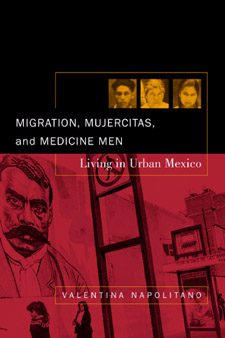 | Title: Migration, mujercitas, and medicine men: living in urban Mexico Author: Napolitano, Valentina Published: University of California Press, 2002 Subjects: Anthropology | Gender Studies | Latin American Studies | Urban Studies | Sociology | Medical Anthropology | Ethnic Studies | Medical Anthropology Publisher's Description: Valentina Napolitano explores issues of migration, medicine, religion, and gender in this incisive analysis of everyday practices of urban living in Guadalajara, Mexico. Drawing on fieldwork over a ten-year period, Napolitano paints a rich and vibrant picture of daily life in a low-income neighborhood of Guadalajara. Migration, Mujercitas, and Medicine Men insightfully portrays the personal experiences of the neighborhood's residents while engaging with important questions about the nature of selfhood, subjectivity, and community identity as well as the tensions of modernity and its discontents in Mexican society. [brief] Similar Items |
| 164. | 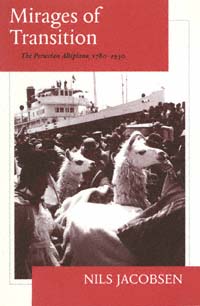 | Title: Mirages of transition: the Peruvian altiplano, 1780-1930 Author: Jacobsen, Nils 1948- Published: University of California Press, 1993 Subjects: History | Anthropology | Latin American History | Latin American Studies Publisher's Description: This case study of the Peruvian altiplano, the vast high-altitude plains surrounding Lake Titicaca, combines economic and social analysis with cultural and institutional history. Nils Jacobsen challenges the prevailing view that the rural Andes underwent a successful transition to capitalism between the mid-nineteenth and early twentieth centuries. He argues that although the political, economic, and administrative structures of colonialism were gradually dismantled by the region's advancing market economy, colonial modes of constructing power and social identity have lingered on even to this day.The result of painstaking research in remote rural archives, some of them now made inaccessible by the Shining Path, Mirages of Transition will become the definitive work on the Peruvian highlands. [brief] Similar Items |
| 165. | 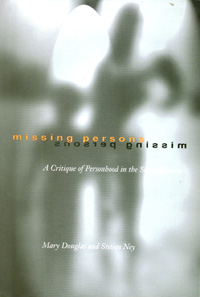 | Title: Missing persons: a critique of the social sciences Author: Douglas, Mary Published: University of California Press, 1998 Subjects: Sociology | Anthropology | Public Policy | Economics and Business Publisher's Description: The Western cultural consensus based on the ideas of free markets and individualism has led many social scientists to consider poverty as a personal experience, a deprivation of material things, and a failure of just distribution. Mary Douglas and Steven Ney find this dominant tradition of social thought about poverty and well-being to be full of contradictions. They argue that the root cause is the impoverished idea of the human person inherited through two centuries of intellectual history, and that two principles, the idea of the solipsist self and the idea of objectivity, cause most of the contradictions.Douglas and Ney state that Economic Man, from its semitechnical niche in eighteenth-century economic theory, has taken over the realms of psychology, consumption, public assistance, political science, and philosophy. They say that by distorting the statistical data presented for policy analysis, the ideas of the solipsist self and objectivity indeed often protect a political bias. The authors propose to correct this by revising the current model of the person. Taking cultural bias into account and giving full play to political dissent, they restore the "persons" who have been missing from the social science debates.Drawing from anthropology, economics, political science, and sociology, the authors set forth a fundamental critique of the social sciences. Their book will find a wide audience among social scientists and will also interest anyone engaged in current discussions of poverty.This book is a copublication with the Russell Sage Foundation. [brief] Similar Items |
| 166. | 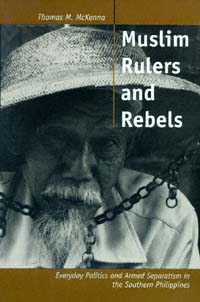 | Title: Muslim rulers and rebels: everyday politics and armed separatism in the southern Philippines Author: McKenna, Thomas M 1952- Published: University of California Press, 1998 Subjects: Anthropology | Politics | Islam | Southeast Asia | Asian History Publisher's Description: In this first ground-level account of the Muslim separatist rebellion in the Philippines, Thomas McKenna challenges prevailing anthropological analyses of nationalism as well as their underlying assumptions about the interplay of culture and power. He examines Muslim separatism against a background of more than four hundred years of political relations among indigenous Muslim rulers, their subjects, and external powers seeking the subjugation of Philippine Muslims. He also explores the motivations of the ordinary men and women who fight in armed separatist struggles and investigates the formation of nationalist identities. A skillful meld of historical detail and ethnographic research, Muslim Rulers and Rebels makes a compelling contribution to the study of protest, rebellion, and revolution worldwide. [brief] Similar Items |
| 167. | 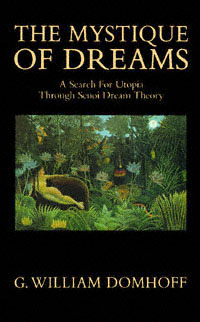 | Title: The mystique of dreams: a search for utopia through Senoi dream theory Author: Domhoff, G. William Published: University of California Press, 1990 Subjects: Sociology | Psychology | Anthropology Publisher's Description: A fascinating strand of the human potential movement of the 1960s involved the dream mystique of a previously unknown Malaysian tribe, the Senoi, first brought to the attention of the Western world by adventurer-anthropologist-psychologist Kilton Stewart. Exploring the origin, attraction, and efficacy of the Senoi ideas, G. William Domhoff also investigates current research on dreams and concludes that the story of Senoi dream theory tells us more about certain aspects of American culture than it does about this distant tribe. In analyzing its mystical appeal, he comes to some unexpected conclusions about American spirituality and practicality. [brief] Similar Items |
| 168. | 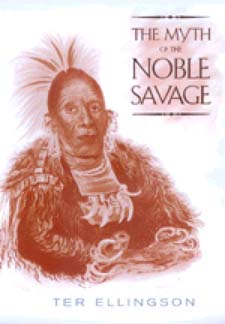 | Title: The myth of the noble savage Author: Ellingson, Terry Jay Published: University of California Press, 2001 Subjects: Anthropology | Cultural Anthropology | Intellectual History | European History | American Studies | European Studies | Postcolonial Studies Publisher's Description: In this important and original study, the myth of the Noble Savage is an altogether different myth from the one defended or debunked by others over the years. That the concept of the Noble Savage was first invented by Rousseau in the mid-eighteenth century in order to glorify the "natural" life is easily refuted. The myth that persists is that there was ever, at any time, widespread belief in the nobility of savages. The fact is, as Ter Ellingson shows, the humanist eighteenth century actually avoided the term because of its association with the feudalist-colonialist mentality that had spawned it 150 years earlier. The Noble Savage reappeared in the mid-nineteenth century, however, when the "myth" was deliberately used to fuel anthropology's oldest and most successful hoax. Ellingson's narrative follows the career of anthropologist John Crawfurd, whose political ambition and racist agenda were well served by his construction of what was manifestly a myth of savage nobility. Generations of anthropologists have accepted the existence of the myth as fact, and Ellingson makes clear the extent to which the misdirection implicit in this circumstance can enter into struggles over human rights and racial equality. His examination of the myth's influence in the late twentieth century, ranging from the World Wide Web to anthropological debates and political confrontations, rounds out this fascinating study. [brief] Similar Items |
| 169. | 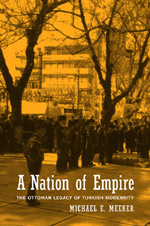 | Title: A nation of empire: the Ottoman legacy of Turkish modernity Author: Meeker, Michael E Published: University of California Press, 2002 Subjects: Anthropology | Middle Eastern Studies | Cultural Anthropology | Middle Eastern History Publisher's Description: This innovative study of modern Turkey is the result of many years of ethnographic fieldwork and archival research. Michael Meeker expertly combines anthropological and historical methods to examine the transition from the Ottoman Empire to the Turkish Republic in a major region of the country, the eastern Black Sea coast. His most significant finding is that a state-oriented provincial oligarchy played a key role in successive programs of reform over the course of more than two hundred years of imperial and national history. As Meeker demonstrates, leading individuals backed by interpersonal networks determined the outcome of the modernizing process, first during the westernizing period of the Empire, then during the revolutionary period of the Republic.To understand how such a state-oriented provincial oligarchy was produced and reproduced along the eastern Black Sea coast, Meeker integrates a contemporary ethnographic study of public life in towns and villages with a historical study of official documents, consular reports, and travel narratives. A Nation of Empire provides anthropologists, historians, and students of Eastern Europe and the Middle East with a new understanding of the complexities and contradictions of modern Turkish experience. [brief] Similar Items |
| 170. |  | Title: National ideology under socialism: identity and cultural politics in Ceauşescu's Romania Author: Verdery, Katherine Published: University of California Press, 1991 Subjects: Anthropology | Politics | Cultural Anthropology | European History | Russian and Eastern European Studies Publisher's Description: The current transformation of many Eastern European societies is impossible to understand without comprehending the intellectual struggles surrounding nationalism in the region. Anthropologist Katherine Verdery shows how the example of Romania suggests that current ethnic tensions come not from a re . . . [more] Similar Items |
| 171. | 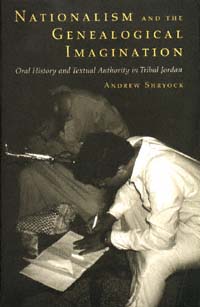 | Title: Nationalism and the genealogical imagination: oral history and textual authority in tribal Jordan Author: Shryock, Andrew Published: University of California Press, 1997 Subjects: Anthropology | Middle Eastern Studies | Middle Eastern History Publisher's Description: This book explores the transition from oral to written history now taking place in tribal Jordan, a transition that reveals the many ways in which modernity, literate historicity, and national identity are developing in the contemporary Middle East. As traditional Bedouin storytellers and literate historians lead him through a world of hidden documents, contested photographs, and meticulously reconstructed pedigrees, Andrew Shryock describes how he becomes enmeshed in historical debates, ranging from the local to the national level.The world the Bedouin inhabit is rich in oral tradition and historical argument, in subtle reflections on the nature of truth and its relationship to poetics, textuality, and power. Skillfully blending anthropology and history, Shryock discusses the substance of tribal history through the eyes of its creators - those who sustain an older tradition of authoritative oral history and those who have experimented with the first written accounts. His focus throughout is on the development of a "genealogical nationalism" as well as on the tensions that arise between tribe and state.Rich in both personal revelation and cultural implications, this book poses a provocative challenge to traditional assumptions about the way history is written. [brief] Similar Items |
| 172. | 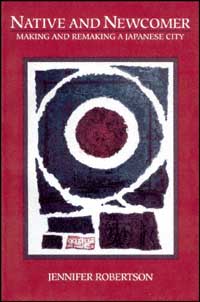 | Title: Native and newcomer: making and remaking a Japanese city Author: Robertson, Jennifer Ellen Published: University of California Press, 1991 Subjects: Anthropology | Japan | Asian History | Urban Studies | Cultural Anthropology Publisher's Description: This expertly crafted ethnography examines the ways in which native and new citizens of Kodaira, a Tokyo suburb, have both remade the past and imagined the future of their city in a quest for an "authentic" Japanese community. Similar Items |
| 173. | 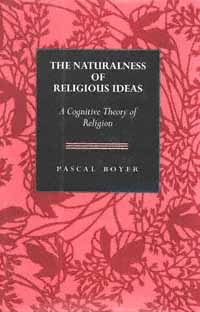 | Title: The naturalness of religious ideas: a cognitive theory of religion Author: Boyer, Pascal Published: University of California Press, 1994 Subjects: Anthropology | Philosophy | Psychology Publisher's Description: Why do people have religious ideas? And why those religious ideas? The main theme of Pascal Boyer's work is that important aspects of religious representations are constrained by universal properties of the human mind-brain. Experimental results from developmental psychology, he says, can explain why certain religious representations are more likely to be acquired, stored, and transmitted by human minds. Considering these universal constraints, Boyer proposes an exciting new answer to the question of why similar religious representations are found in so many different cultures. His work will be widely discussed by cultural anthropologists, psychologists, and students of religion, history, and philosophy. [brief] Similar Items |
| 174. | 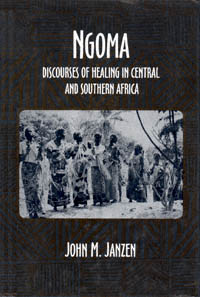 | Title: Ngoma: discourses of healing in central and southern Africa Author: Janzen, John M Published: University of California Press, 1992 Subjects: Anthropology | African Studies | Medical Anthropology Publisher's Description: Ngoma , in Bantu, means drum, song, performance, and healing cult or association. A widespread form of ritual healing in Central and Southern Africa, ngoma is fully investigated here for the first time and interpreted in a contemporary context. John Janzen's daring study incorporates drumming and spirit possession into a broader, institutional profile that emphasizes the varieties of knowledge and social forms and also the common elements of "doing ngoma ."Drawing on his recent field research in Kinshasa, Dar-es-Salaam, Mbabane, and Capetown, Janzen reveals how ngoma transcends national and social boundaries. Spoken and sung discourses about affliction, extended counseling, reorientation of the self or household, and the creation of networks that link the afflicted, their kin, and their healers are all central to ngoma - and familiar to Western self-help institutions as well. Students of African healing and also those interested in the comparative and historical study of medicine, religion, and music will find Ngoma a valuable and thought-provoking book. [brief] Similar Items |
| 175. | 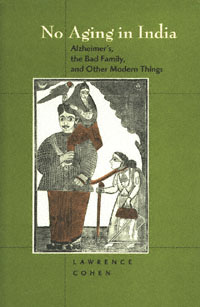 | Title: No aging in India: Alzheimer's, the bad family, and other modern things Author: Cohen, Lawrence 1961- Published: University of California Press, 1998 Subjects: Anthropology | Medical Anthropology | Aging | South Asia Publisher's Description: From the opening sequence, in which mid-nineteenth-century Indian fishermen hear the possibility of redemption in an old woman's madness, No Aging in India captures the reader with its interplay of story and analysis. Drawing on more than a decade of ethnographic work, Lawrence Cohen links a detailed investigation of mind and body in old age in four neighborhoods of the Indian city of Varanasi (Banaras) with events and processes around India and around the world. This compelling exploration of senility - encompassing not only the aging body but also larger cultural anxieties - combines insights from medical anthropology, psychoanalysis, and postcolonial studies. Bridging literary genres as well as geographic spaces, Cohen responds to what he sees as the impoverishment of both North American and Indian gerontologies - the one mired in ambivalence toward demented old bodies, the other insistent on a dubious morality tale of modern families breaking up and abandoning their elderly. He shifts our attention irresistibly toward how old age comes to matter in the constitution of societies and their narratives of identity and history. [brief] Similar Items |
| 176. | 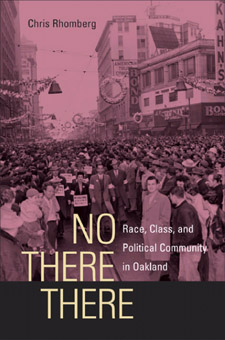 | Title: No there there: race, class, and political community in Oakland Author: Rhomberg, Chris 1959- Published: University of California Press, 2004 Subjects: Sociology | Anthropology | American Studies | Labor Studies | Politics | Ethnic Studies | Urban Studies Publisher's Description: Challenged by Ku Klux Klan action in the '20s, labor protests culminating in a general strike in the '40s, and the rise of the civil rights and black power struggles of the '60s, Oakland, California, seems to encapsulate in one city the broad and varied sweep of urban social movements in twentieth-century America. Taking Oakland as a case study of urban politics and society in the United States, Chris Rhomberg examines the city's successive episodes of popular insurgency for what they can tell us about critical discontinuities in the American experience of urban political community. [brief] Similar Items |
| 177. | 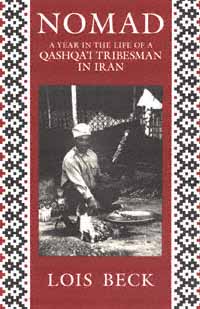 | Title: Nomad: a year in the life of a Qashqa'i tribesman in Iran Author: Beck, Lois 1944- Published: University of California Press, 1991 Subjects: Anthropology | Cultural Anthropology | Middle Eastern Studies | Middle Eastern History Publisher's Description: Borzu Qermezi was the headman and political leader of a group of nomadic pastoralists who were part of the Qashqa'i confederacy of southwest Iran. Proud, complex, strong-willed, witty, and cunning, Borzu successfully led his people on their annual migrations for many years. He regulated their travel; mediated conflicts; intervened in (and sometimes exacerbated) tense situations between his people and other nomads; and dealt with the government police agency. Structuring the account around the four seasons, Lois Beck recounts the day-to-day activities of Borzu during the year she spent traveling with his people. She describes the rigors of nomadic life and the consequences of decisions made in haste.During 1970 to 1971, Borzu and his people were faced with many difficulties. When the expected winter rains did not fall, pastures and crops shriveled. Unable to sell their starving livestock for any profit, Borzu's people saw their debts to urban merchants and moneylenders increase. At the same time, Iran exercised more bureaucratic control over the Qashqa'i by applying new policies over migratory schedules and the allocation of scarce pastures, and by introducing non-Qashqa'i agriculturalists and livestock investors as legitimate land users. All these measures threatened the nomad's way of life and eventually undermined the role of headmen such as Borzu. Lois Beck details the vicissitudes endured by Borzu's people and the strategies he devised to cope with them.Blending ethnographic and historical material, this book contains information unavailable for other tribal and nomadic pastoral groups in the Middle East and central Asia. Through Beck's deft analysis, we come to understand why nomadic pastoralism was once an important part of this vast region, and why tribal society has endured. [brief] Similar Items |
| 178. | 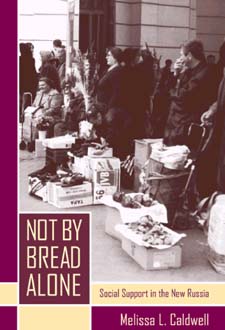 | Title: Not by bread alone: social support in the new Russia Author: Caldwell, Melissa L 1969- Published: University of California Press, 2004 Subjects: Anthropology | Russian and Eastern European Studies | European Studies Publisher's Description: What Muscovites get in a soup kitchen run by the Christian Church of Moscow is something far more subtle and complex - if no less necessary and nourishing - than the food that feeds their hunger. In Not by Bread Alone, the first full-length ethnographic study of poverty and social welfare in the postsocialist world, Melissa L. Caldwell focuses on the everyday operations and civil transactions at CCM soup kitchens to reveal the new realities, the enduring features, and the intriguing subtext of social support in Russia today. In an international food aid community, Caldwell explores how Muscovites employ a number of improvisational tactics to satisfy their material needs. She shows how the relationships that develop among members of this community - elderly Muscovite recipients, Russian aid workers, African student volunteers, and North American and European donors and volunteers - provide forms of social support that are highly valued and ultimately far more important than material resources. In Not by Bread Alone we see how the soup kitchens become sites of social stability and refuge for all who interact there - not just those with limited financial means - and how Muscovites articulate definitions of hunger and poverty that depend far more on the extent of one's social contacts than on material factors. By rethinking the ways in which relationships between social and economic practices are theorized - by identifying social relations and social status as Russia's true economic currency - this book challenges prevailing ideas about the role of the state, the nature of poverty and welfare, the feasibility of Western-style reforms, and the primacy of social connections in the daily lives of ordinary people in post-Soviet Russia. [brief] Similar Items |
| 179. | 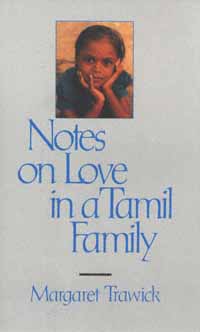 | Title: Notes on love in a Tamil family Author: Trawick, Margaret Published: University of California Press, 1990 Subjects: Anthropology | South Asia Similar Items |
| 180. |  | Title: Oil age Eskimos Author: Jorgensen, Joseph G 1934- Published: University of California Press, 1990 Subjects: Anthropology | Ecology | Economics and Business Publisher's Description: In a book made especially timely by the disastrous Exxon Valdez oil spill in March 1989, Joseph Jorgensen analyzes the impact of Alaskan oil extraction on Eskimo society. The author investigated three communities representing three environments: Gambell (St. Lawrence Island, Bering Sea), Wainwright (North Slope, Chukchi Sea), and Unalakleet (Norton Sound). The Alaska Native Claims Settlement Act of 1971, which facilitated oil operations, dramatically altered the economic, social, and political organization of these villages and others like them. Although they have experienced little direct economic benefit from the oil economy, they have assumed many environmental risks posed by the industry. Jorgensen provides a detailed reminder that the Native villagers still depend on the harvest of naturally-occurring resources of the land and sea - birds, eggs, fish, plants, land mammals and sea mammals. Oil Age Eskimos should be read by all those interested in Native American societies and the policies that affect those societies. [brief] Similar Items |